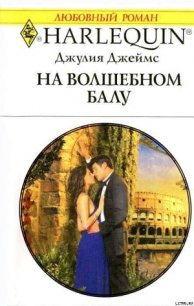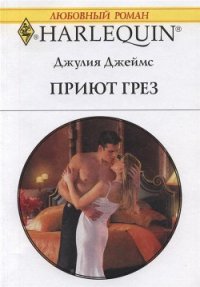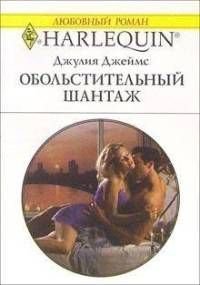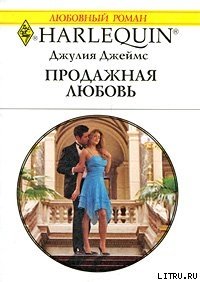Julia Ward Howe - Richards Laura E. (бесплатная регистрация книга TXT) 📗
This was the first of thirty happy years passed at 241 Beacon Street, the house Uncle Sam bought for her. The day she moved in, a friend asked her the number of her new house.
"241," she answered. "You can remember it because I'm the two-forty one."
Oscar Wilde was at this time making a lecture tour through the United States. This was the heyday of his popularity; he had been heralded as the apostle of the ?sthetic movement. At his first lecture, given at the old Boston Music Hall, he appeared in a black velvet court suit with ruffles, and black silk stockings, his hair long and curling on his shoulders. A few moments after he had taken his place on the platform, a string of Harvard students filed into the hall, dressed in caricature of the lecturer's costume, each with a sunflower in his coat and a peacock feather in his hand. Our mother, who was in the audience, recognized near the head of the procession her favorite grand-nephew, Winthrop Chanler. Wilde took this interruption in good part, welcoming the lads and turning the laugh against them. "Imitation is the sincerest flattery," he said, "though this is a case where I might say, 'Save me from my friends.'"
Wilde came several times to the house in Boston; later Uncle Sam brought him to spend a day or two at Oak Glen, where the household was thrown into a flutter by the advent of his valet. It was one thing to entertain the ?sthete, another to put up the gentleman's gentleman. In spite of all the affectation of the ?sthetic pose, Wilde proved a rarely entertaining guest. He talked amazingly well; in that company all that was best in the man came to the surface. He recited his noble poem, "The Ode to Albion," under the trees of Oak Glen, and told endless stories of Swinburne, Whistler, and other celebrities of the day. The dreadful tragedy came later; at this time he was one of the most brilliant figures in the literary world.
"March 4. To Saturday Morning Club with Mrs. [John] Sherwood; very busy; then with her to Blind Asylum in a carriage. Drove up to front entrance and alighted, when the gale took me off my feet and threw me down, spraining my left knee so badly as to render me quite helpless. I managed to hobble into the Institution and to get through Julia's lunch, after which I was driven home. Sent for Dr. Beach and was convicted of a bad sprain, and sentenced to six weeks of (solitary) confinement."
"March 5. In bed all day."
"March 6. On the lounge; able to work."
"March 8. Day of mid-year conference of A.A.W. Business meeting at the N.E.W.C., where I, of course, could not be present. Afternoon meeting was in my room. On the whole satisfactory."
To Laura
241 Beacon Street,
March 18, 1882.
Whereupon, my dearest, let there be no further pribbles and prabbles, which I conjugate thus: I pribble, thou prabblest, he, she, or it pribble prabbles. Maud leaveth on a Tuesday, come thou on that same Tuesday, taking care to keep thy nose in front of thy countenance, and not otherwisely, which were neither wisely nor too well. I hope thou wilt not fail to come on Tuesday. And pray don't forget the baby, as the nurse might find it lonesome to be here without her. During the period of thy visit, I will change my name to Jinkins, we will have such high Jinks!... Beacon Street looks as though it wanted something. I think thou beest it....
Am ever thy lame game Mother.
"March 24. Longfellow died at about 3.30 P.M. to-day. He will be much and deservedly lamented. The last of dear Chev's old set, the Five of Clubs, nicknamed by Mary Dwight the 'Mutual Admiration Society.' On hearing of this event, I put off my reception for the Zuni chiefs, which should have been on Monday, when the funeral will probably take place."
"March 26. Dear Brother Sam came on very unexpectedly to attend the funeral service held at the Longfellow [house] for relatives and intimates. I also was bidden to this, but thought it impossible for me to go, lame as I am. Sent word out to Julia Anagnos, who came in, and went in my place with Uncle Sam. The dear old fellow dined with us. I got downstairs with great difficulty and fatigue. We had a delightful evening with him, but he would go back to New York by the night train."
"March 30. To-day the Zuni chiefs and Mr. Cushing, their interpreter and adopted son, came to luncheon at 1.45. There were twelve Indian chiefs in full Indian dress. Reception afterwards."
The Zuni Indians live in Arizona. Once in the year they make a pilgrimage to the seashore, and wading into the ocean at sunrise, offer prayer to the Great Spirit, and fill their vessels of woven grass with water to be used through the year in their religious exercises. This pilgrimage had always been made to the Pacific; but in the hearts of the tribe lingered a tradition that once in a hundred years the "Water of Sunrise" should be visited, and they dreamed of the Eastern ocean. The tradition was now confirmed, the dream fulfilled, through the friendly offices of Mr. Cushing.
The ceremony was one of touching interest; hundreds of people gathered at City Point to watch it. Most of the spectators felt the beauty and solemnity of the service (for such it was), but a few were inclined to jeer, till they were sternly rebuked by Phillips Brooks.
As our mother could not go to see the Zunis, they must come to see her, and Mr. Cushing gladly brought them. They were grave, stalwart men, with a beautiful dignity of carriage and demeanor. A picture not to be forgotten is that of her in her white dress, bending eagerly forward to listen while the chiefs, sitting in a circle on the floor, told stories, Mr. Cushing interpreting for her benefit. At parting, each man took her hand, and raised it to his forehead with a gesture of perfect grace. The eldest chief, before this salute, held her hand a moment, and blew across the palm, east and west. "Daughter," he said, "our paths have crossed here. May yours be bright hereafter!"
"April 1. To-day Edward [Everett] Hale brought me a parting memento of the Zunis—the basket with which they had dipped up the water from the 'ocean of sunrise.' Mr. Cushing sent this. E. E. H. also spoke about five hymns which should be written corresponding to the five great hymns of the Catholic mass. He asked me to write one of these and I promised to try."
"April 16. Splint off to-day. Waited for Dr. Beach, so could not go to church. Had an interesting talk with the Doctor on the Immortality of the Soul, in which he is a believer."
"April 27. Made to-day a good start in writing about Margaret Fuller. This night at 8.50 P.M. died Ralph Waldo Emerson, i.e., all of him that could die. I think of him as a father gone—father of so much beauty, of so much modern thought."
"May 7. To church, going out for the first time without a crutch, using only my cane.
"J. F. C.'s sermon was about Emerson, and was very interesting and delicately appreciative. I think that he exaggerated Emerson's solid and practical effect in the promotion of modern liberalism. The change was in the air and was to come. It was in many minds quite independently of Mr. Emerson. He was the foremost literary man of his day in America, philosopher, poet, reformer, all in one. But he did not make his age, which was an age of great men and of great things."
"May 14. Had a sudden thought in church of a minister preaching in a pulpit and a fiend waiting to carry him off to hell. Made some verses out of this.




